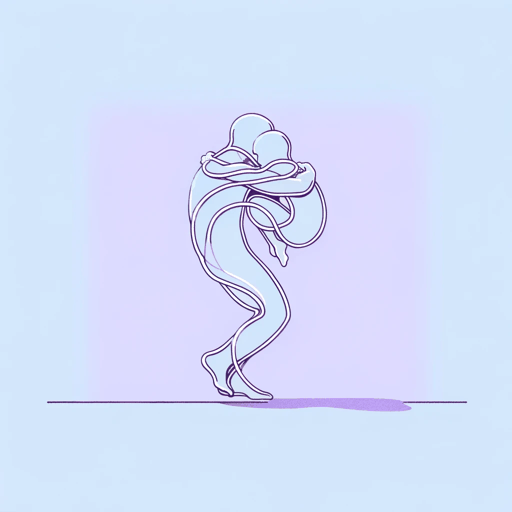20 pages • 40 minutes read
Theodore RoethkeMy Papa's Waltz
Fiction | Poem | Adult | Published in 1942A modern alternative to SparkNotes and CliffsNotes, SuperSummary offers high-quality Study Guides with detailed chapter summaries and analysis of major themes, characters, and more.
Symbols & Motifs
The Waltz
The impromptu dance the father and son execute in the kitchen symbolizes both the yearning to communicate and the failure to achieve meaningful communication between the boy and his father. The father is intoxicated, coming home late, presumably, from another night in a bar. The mother and son have waited up for him, and the father uses the effort to dance with his son as a way to bond with the boy. The effort, if well-intentioned, ends up with the father in his own whirling world and the son longing for the security and retreat of his bed.
Drawing on Roethke’s German roots, the waltz is a precise, tightly choreographed dance. The steps are timed and careful. When the dance collapses into furious chaos, the two spinning in careless circles, this reflects the larger inability of the father to communicate with his young son. The closer the father draws the boy to him physically, the more distant the boy is emotionally. What starts as a romp, an escapade between a father and his naïve and trusting son, quickly spirals into a taut and anxious contest of wills, the father exerting a defined advantage through his sheer physical presence. The waltz should express the communication between two people by fusing them into a single energy, but here it becomes a domination/subjugation dynamic.

